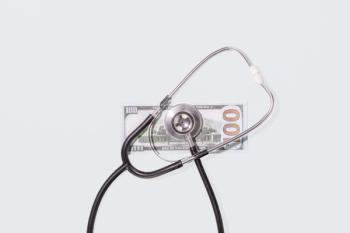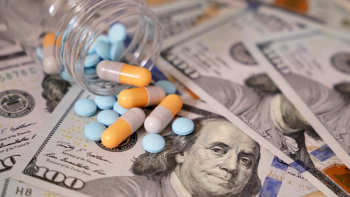
Get Real: Preparing for the Real World Evidence Future
Why Real World Evidence (RWE) is here to stay, and what you need to do to integrate it into your business strategy as painlessly as possible.
Joakim Söderberg explains why Real World Evidence (RWE) is here to stay, and what you need to do to integrate it into your business strategy as painlessly as possible.
We are all familiar with the traditional life cycle of pharmaceuticals. The tradition has also formed its own logic regarding research and data collection.
There are however signs that this paradigm is fundamentally changing. Over the past year, Real World Evidence (RWE) has gathered more pace as a buzz term. People that used be Key Account Managers or Business Development Managers now turn up to conferences as “Manager RWE” and “Adherence Manager”.
The background for this is as simple as it is terrifying: the old business model doesn’t work any more.
We used to be able to market blockbuster products to physicians who individually had the right to make a decision on what drug should be used. This we did using our traditional tools, reps and advertising.
And we tolerated the spill that we always knew was there —the drug not being used to its full potential, patients stopping therapy to early, patient being non adherent to healthcare’s recommendation, etc.
This we did because we knew that the real battle was not in the usage of the drugs, but in getting access to the physicians. Filling the sink with prescriptions in a tempo that allowed us to ignore the hole in the bottom, where potential profits and patient well-being flowed out.
Well, the battleground has moved and the leakages can no longer be ignored.
Cost awareness has led to more control from, and a power shift to, the payers. Potential blockbuster drugs, most notably Vioxx and Acomplia, have been withdrawn from the market due to side effects in small subset populations, and a lot of NCEs with high potential have failed, quite often as late as in late-Phase III.
This has led to an increased focus in what we might call the “Aftermarket”, everything that happens after that a drug has been prescribed. In the IT world we would use terms like “support market”, “customer retention activities”, “returning customer”. It is not a coincidence that we do not have terms like these to describe the relationship between Big Pharma and patients on the Rx market.
Using Real World Evidence
In its simplest form RWE involves collecting and analyzing data on how a drug is actually used in the real world, as opposed to what happens in a ordered clinical research setting with protocols and highly motivated physicians.
The tools used are registries and the data collection is done as part of everyday healthcare.
Not surprisingly, battle cries of “source data verification” and “data control” are being called by the defenders of the old clinical research paradigm. But when confronted with the important question, “How well have the old methods predicted actual use and effects of drugs in real life?” these defenders are usually without answer.
Nevertheless, the new model will not come through by breaking down the old paradigm. It will have to evolve from the way we have worked over the past 30–40 years.
Adaptive licensing
We are already seeing movement in this direction from the regulatory agencies. There’s growing attention, for example, to a concept called “adaptive licensing”
The agencies are taking models used in the orphan drug market and applying them on a broader basis. It is by default almost impossible to get adequate Phase III data on orphan drugs since the patient material is too small, so regulatory departments on both sides of the fence have been forced to accept that these drugs have been released for general use in spite of not having enough Phase III evidence.
To compensate, the drugs are followed and studied extensively during their first years on the market — in “real life”. Adaptive licensing is simply doing the same thing for drugs that have a broader potential. They are released to the market earlier than they would normally be, but to a small subset of patients, who are followed in much more detail, using registries, electronic medical records and other everyday clinical tools. It’s RWE instead of late-Phase III.
Some regulatory commentators are speculating that this will lead to different kinds of approvals that will affect pricing and reimbursement decisions. There is no consensus on the exact models that should be used, but pilot projects are already being planned. It is clear that this will increase the focus even more on RWE.
RWE and pharma
So how will all this affect pharma as we know it? Well, to the roots. And when something is torned up by its roots, it tends to be painful. There’ll be skepticism and a degree of protectionism, both from the industry and the regulatory agencies. But this is not about changing the game, it is about playing a new one — with rules that are not yet written.
Ten to 15 years down the line, RWE and adaptive licensing will be cornerstones of the pharma market. Ahead of this, by way of practical advice, I suggest that you take note of the following.
Control over data is power. Traditionally pharma companies have supported researchers and payer organizations financially to help them set up registries and follow up programs and then given them full control over the usage of data. This will have to change. Transparent agreements regarding mutual rights to follow up data will need be set up.
The pharma companies’ responsibility includes setting the stage. There is little competence within pharma today on things like electronic medical records, data quality in everyday care and information standards. This also needs to change. If pharma companies want to have access to qualitative data on their drugs, they will have to be involved in the mechanisms that actually generate these data.
Open up for internal discussions and changes. A paradigm shift of this magnitude requires more than simply changing titles on name tags. Regulatory and clinical research departments will need to evolve. The new business models will not work with old organizations.
RWE is not a new trend or a concept; it is, rather, an important symptom of a fundamental change in the global pharma market. As such it cannot be ignored.
About the author
Joakim Söderberg is a Swedish pharmacist and entrepreneur who founded Health Solutions in 2000. Health Solutions, says Söderberg, has worked with real world evidence “since before the term existed, and is today extremely excited to be in the middle of the changing pharma environment”.
Newsletter
Lead with insight with the Pharmaceutical Executive newsletter, featuring strategic analysis, leadership trends, and market intelligence for biopharma decision-makers.




